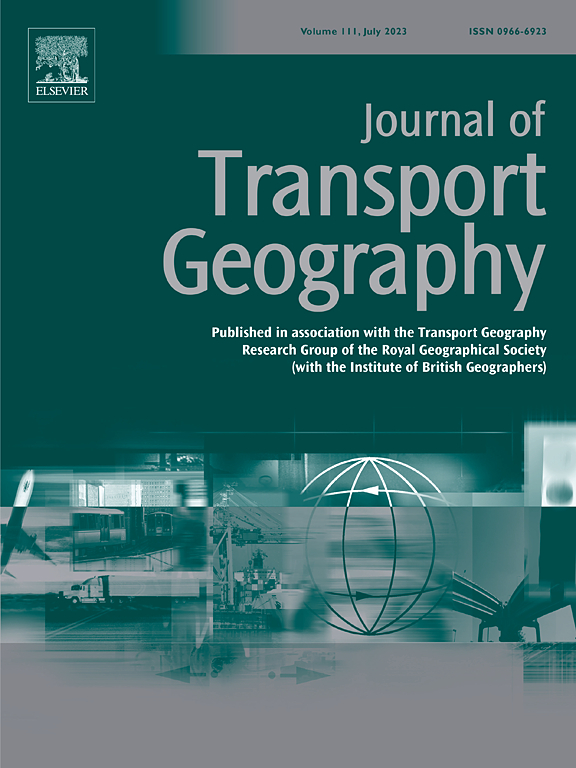谈判空间:厄瓜多尔昆卡妇女拾荒者的日常流动
IF 6.3
2区 工程技术
Q1 ECONOMICS
引用次数: 0
摘要
在拉丁美洲、非洲和南亚的许多城市,非正式的女性拾荒者在管理可回收废物、降低市政成本和城市碳足迹方面发挥着至关重要的作用。尽管他们做出了贡献,但对他们流动模式的关注有限,这反映了政府、学术界和社会对了解他们的特殊需求的重视程度较低,阻碍了包容性政策和创新方法的发展。本研究采用混合方法研究非正式城市拾荒者的空间行为。该方法包括三个阶段:首先,调查和绘图技术,揭示居住、工作和存储地点、运输方式和收集工具的空间分布。其次,GPS跟踪识别移动模式、主导流和收集路线集群。第三,多地点民族志揭示了他们日常活动背后的原因和感知。这三个阶段的结合突出了制约和限制其流动性的因素。在厄瓜多尔昆卡的应用中,该方法为理解女性拾荒者的空间行为建立了基线。结果表明,拾捡者每天步行16公里,面临着空间、经济、物理和社会方面的挑战。通过关注妇女的日常生活,本研究揭示了社会空间不平等现象,为倡导有效、包容的公共政策提供了坚实的基础。本文章由计算机程序翻译,如有差异,请以英文原文为准。
Negotiating space: The daily mobility of women waste pickers in Cuenca, Ecuador
In many cities across Latin America, Africa, and South Asia, informal women waste pickers play a crucial role in managing recyclable waste, reducing municipal costs and urban carbon footprints. Despite their contributions, limited attention to their mobility patterns reflects the low priority governments, academia and society assign to understanding their particular needs, hindering the development of inclusive policies and innovative methodologies.
This study introduces a mixed methods approach to study the spatial behavior of informal urban waste pickers. The methodology comprises three stages: First, a survey and mapping techniques, reveal the spatial distribution of residence, work and storage locations, mode of transport, and collection tools. Second, GPS tracking identifies mobility patterns, dominant flows and clusters of their collection routes. Third, multi-sited ethnography uncovers the reasons and perceptions behind their daily movements. The integration of these three stages highlights the factors that constrain and limit their mobility. Applied in Cuenca, Ecuador, this method establishes a baseline for understanding women waste pickers' spatial behavior. Results show that waste pickers walk up to 16 km daily, navigating spatial, economic, physical, and social challenges. By focusing on women's everyday lives, this study reveals socio-spatial inequalities and provides a robust foundation for advocating effective, inclusive public policies.
求助全文
通过发布文献求助,成功后即可免费获取论文全文。
去求助
来源期刊

Journal of Transport Geography
Multiple-
CiteScore
11.50
自引率
11.50%
发文量
197
期刊介绍:
A major resurgence has occurred in transport geography in the wake of political and policy changes, huge transport infrastructure projects and responses to urban traffic congestion. The Journal of Transport Geography provides a central focus for developments in this rapidly expanding sub-discipline.
 求助内容:
求助内容: 应助结果提醒方式:
应助结果提醒方式:


